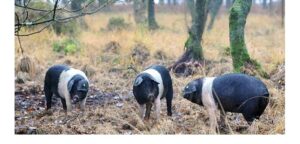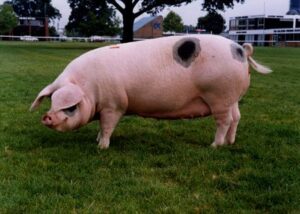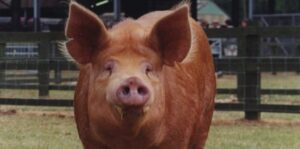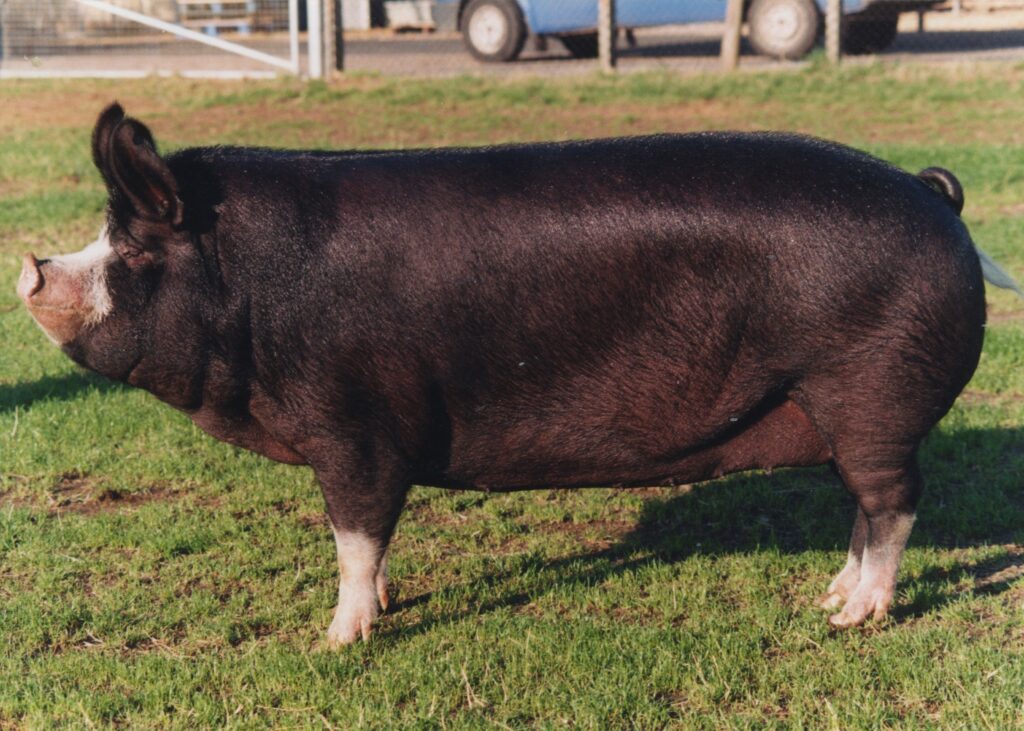A number of the UK’s iconic native pig breeds remain very much on the endangered list, with some showing concerning declines, according to the Rare Breeds Survival Trust (RBST).
RBST’s 2024-25 Watchlist highlights increasing concerns for the UK’s rare native pig and poultry breeds, prompting it to call for targeted Government action to encourage more people to keep them via the new environmental schemes.
Seven of the UK’s 11 native pig breeds – Berkshire (pictured above), British Landrace, British Lop, Large Black, Large White, Middle White and Tamworth – remain in the highest risk Priority category, with most of the rare pig breeds now showing a sustained downward trend in total sow numbers.
The number of Berkshire pig sows has fallen from 363 in 2021 to 288 in 2023, while Tamworth pig sow numbers have reduced from 304 in 2020 to 239 in 2023.
Four more are in the At-Risk category – British Saddleback, Gloucestershire Old Spot, Oxford Sandy and Black Welsh. Of these, the Welsh pig sow numbers have fallen from 457 in 2020 to 296 in 2023.
RBST said we must reverse these worrying declines before it is too late.

There is some positive news, however. British Saddlebacks are bucking the general decline across the pig breeds and, after a challenging 2022, the number of Saddleback dams producing pedigree registered progeny was up 16% in 2023, while the number of breeders was up 12%.
In other species, the Watchlist moves all native chicken, duck, geese and turkey breeds into the Priority rare breed category in response to the devastating impact on poultry breeding programmes in recent years of avian flu restrictions combined with significant increases in animal husbandry costs.
It shows a more positive and stable picture overall for native equines, cattle, sheep and goats, however.

RBST chief executive Christopher Price said: “Each of our rare native livestock and equine breeds is unique. Some have provided communities with food, fibre and power for centuries. As well as their great value to our national heritage these breeds have a crucial role in the UK’s transition to sustainable food production that also supports the natural environment.
“Today’s new RBST Watchlist reflects the major challenges faced by people keeping pigs and poultry over the past two years, notably the avian flu outbreaks and the sustained increase in animal feed and husbandry costs.”

He called for changes to Defra’s Environmental Land Management (ELM) scheme in England to support native pig and poultry breeds.
He said while ELMS encourages farmers and smallholders to choose native breeds for grazing, it ‘does nothing to help safeguard the future of our native pig and poultry breeds’.
“Today’s Watchlist shows the outlook for our rare pig and poultry breeds is a great concern – we want to see the ELM’s SP8 supplement broadened to include native pigs and poultry as well as grazing animals,” he said.
The RBST Watchlist 2024-25 shows which of the UK’s cattle, sheep, pig, goat, poultry and equine breeds are now the most urgent ‘Priority’ concerns, which remain ‘At Risk’, and which are currently non-rare native breeds. It reflects robust measures of the genetic diversity within each breed as well as the numbers of breeding females registered.
Mr Price added: “RBST continues to work hard for more positive results for all our rare livestock and equine breeds through scientific research, application of the latest conservation tools and techniques, supporting crucial networks for breeders, and promoting these breeds and their sustainable, high-quality produce.”




